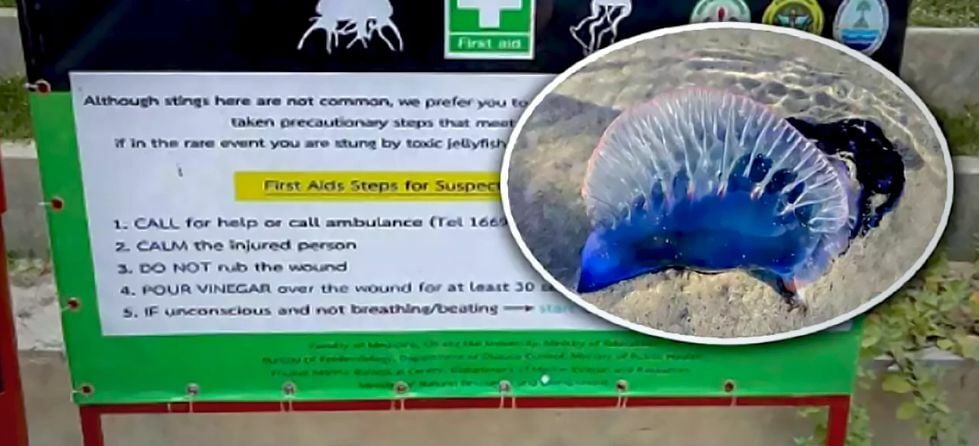Phuket officials warn tourists to beware of jellyfish

Phuket officials are warning tourists to beware of potentially dangerous jellyfish while enjoying the island’s beaches. The warning issued today comes after more than 30 visitors reported being stung by jellyfish at Kata Beach last week, with most experiencing mild symptoms.
In response to this, signs have been placed at over 20 popular tourist destinations around Phuket, including Patong, Nai Yang, Surin beaches, and Panwa Cape. The signs aim to awareness and provide information on first-aid measures.
Lifeguards are equipped with vinegar bottles to provide immediate relief to those who may have been stung, Nation Thailand reported.
Phuket Marine Resources Conservation director, Suchart Ratanruangsri, advises tourists to pour vinegar on the sting for at least 30 seconds if stung by a fire jellyfish. He warned, however, that pouring fresh water or alcohol on the sting will only make the pain worse.
If a Portuguese jellyfish is the cause of the sting, people are advised to clean the wound with seawater or beach morning glory, instead of vinegar or fresh water.
Suchart also emphasized the importance of seeking medical attention as soon as possible, regardless of the type of jellyfish involved.
Thailand is home to many species of jellyfish, including Morbakka fenneri, better known as fire jellyfish. This breed of jellyfish doesn’t get its name from its pinkish-red colour, but from its potent sting.
Venomous jellyfish are no joke and are found in Thailand’s waters all year round. Don’t worry, you don’t have to cancel your beach holiday, just learn the necessary tips to prevent and treat jellyfish stings and you’ll be all set.
Don’t ignore a red flag. Whether the red flag is a warning against choppy conditions, a shark, or a smack of jellyfish, it is not safe to swim. Tourists ignoring red flags at the beach in Thailand or anywhere has tragic consequences.
Do not underestimate the danger posed by toxic jellyfish. Jellyfish venom attacks the cardiovascular system and can cause the human heart to stop beating in just two to five minutes. Untreated jellyfish stings can be fatal.
Latest Thailand News
Follow The Thaiger on Google News:


























